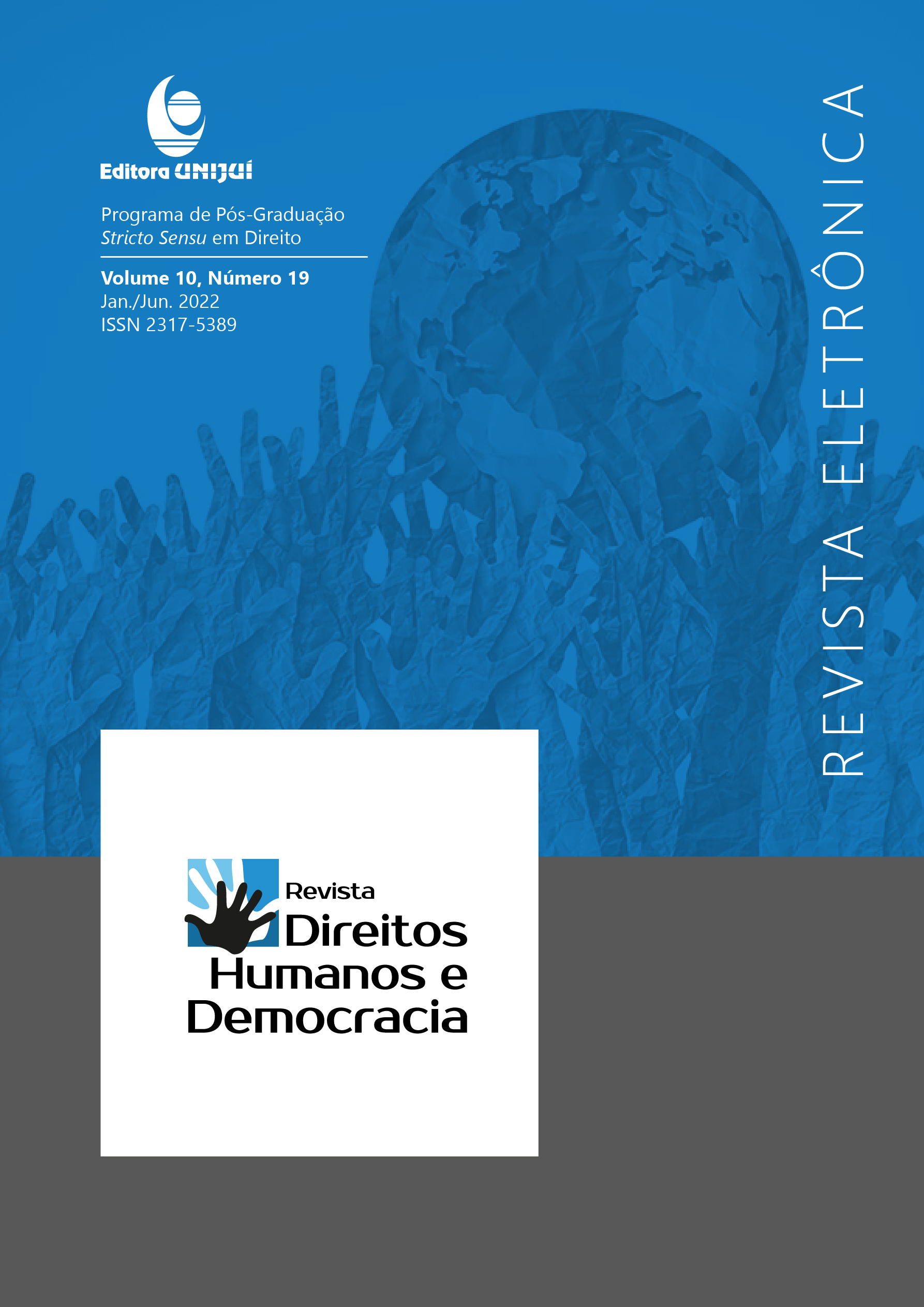Between the Rule and the Exception: The Paradox of Duty Being of Penance and ADPF 347
DOI:
https://doi.org/10.21527/2317-5389.2022.19.11407Keywords:
Direitos humanos; Inimigo social; ADPF 347; Estado de coisas inconstitucional; Estado de ExceçãoAbstract
The problematization regarding ADPF 347, in particular the declaration of the “unconstitutional state of affairs” (ECI), demands a critique, in terms of reflection, from the positivist matrix of personality rights, and the problematization outlined by Giorgio Agamben regarding to the state of exception, insofar as, not only mass incarceration, but the very conditions of the incarcerated person - the prisoner - reveal the possibility of the suspension of his rights, above all, of personality rights. Within this perspective, also following Michel Foucault's reading, the present study presents, as an object of investigation, through the hypothetical-deductive method, the conditions of the paradox in which the unconstitutionality of the prisoner's condition is recognized, and At the same time, this system of promoting mass incarceration is reproduced through the form of the exception, as a result of the operation of law and politics via an exceptional device of capture.
Downloads
Published
How to Cite
Issue
Section
License
By publishing in the Revista Direitos Humanos e Democracia, authors agree to the following terms:
Articles are licensed under the Creative Commons Atribuição 4.0 Internacional (CC BY 4.0), which allows:
Share — copy and redistribute the material in any medium or format;
Adapt — remix, transform, and build upon the material for any purpose, including commercial use.
These permissions are irrevocable, provided the following terms are respected:
Attribution — authors must be properly credited, with a link to the license and indication of any modifications made;
No additional restrictions — no legal or technological measures may be applied that restrict the use permitted by the license.
Notices:
The license does not apply to elements in the public domain or covered by legal exceptions.
The license does not grant all rights required for specific uses (e.g., image rights, privacy, or moral rights).
The journal is not responsible for opinions expressed in the articles, which remain the sole responsibility of the authors. The Editor, with the support of the Editorial Committee, reserves the right to suggest or request modifications when necessary.
Only original scientific articles presenting research results of interest, not previously published or simultaneously submitted to another journal with the same purpose, will be accepted.
References to trademarks or specific products are intended solely for identification purposes and do not imply any promotional endorsement by the authors or the journal.
License Agreement: Authors retain copyright over their articles and grant the Revista Direitos Humanos e Democracia the right of first publication.













